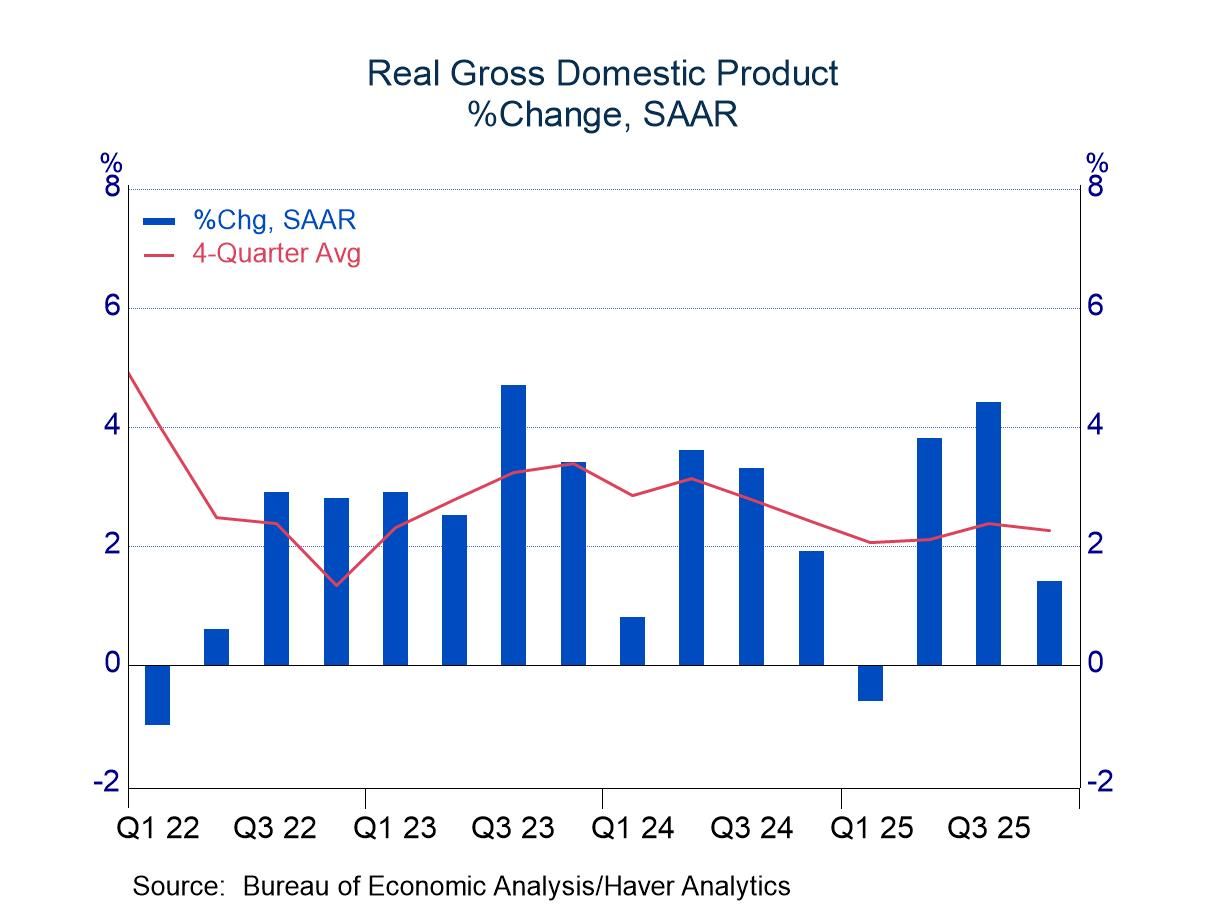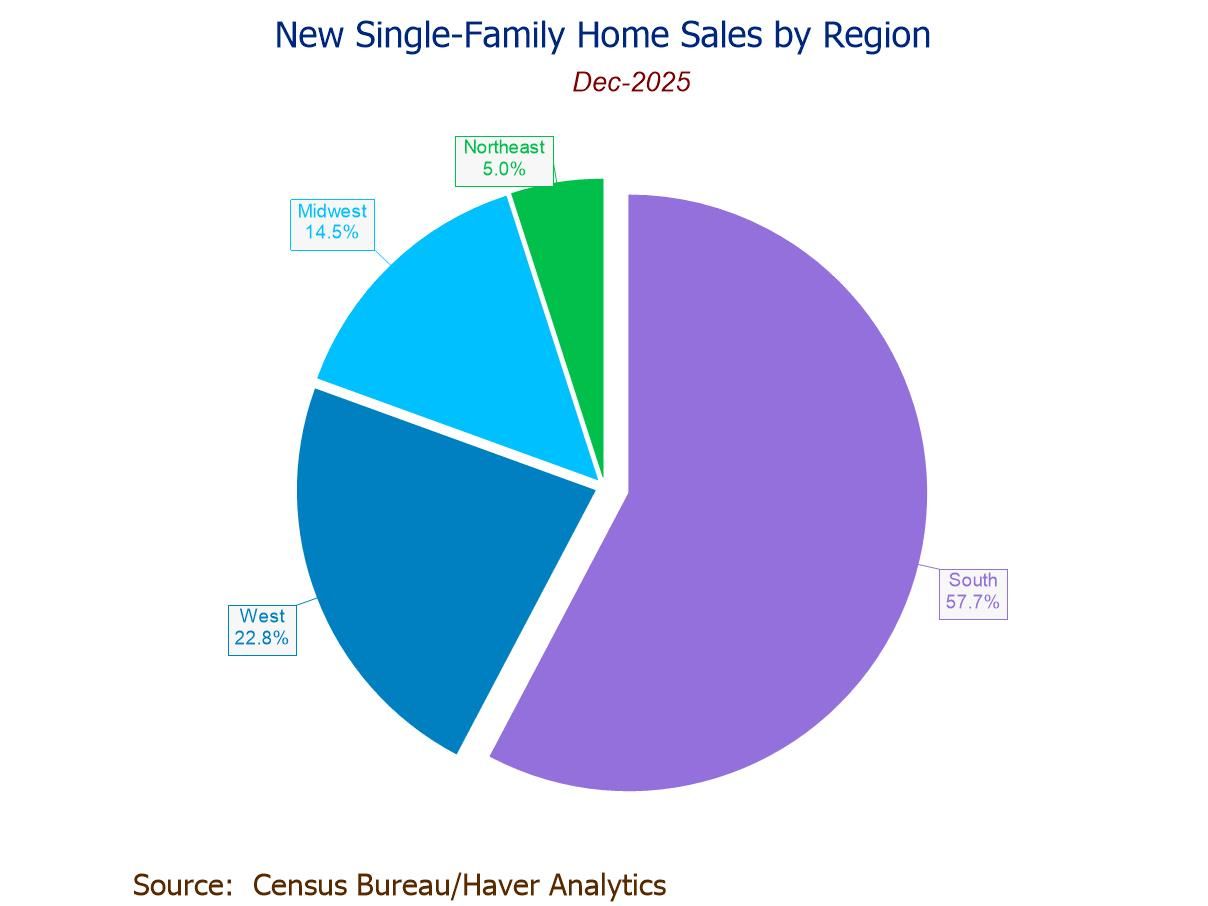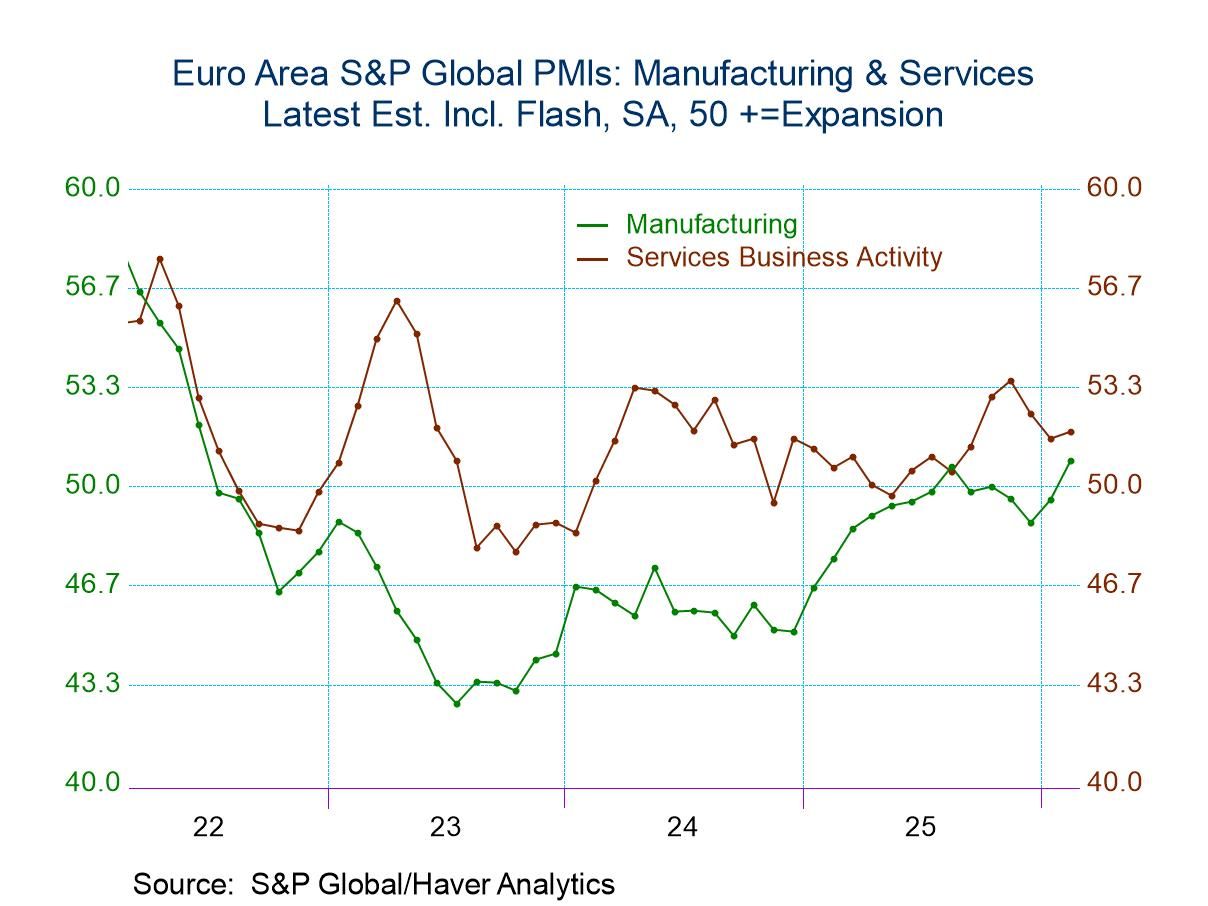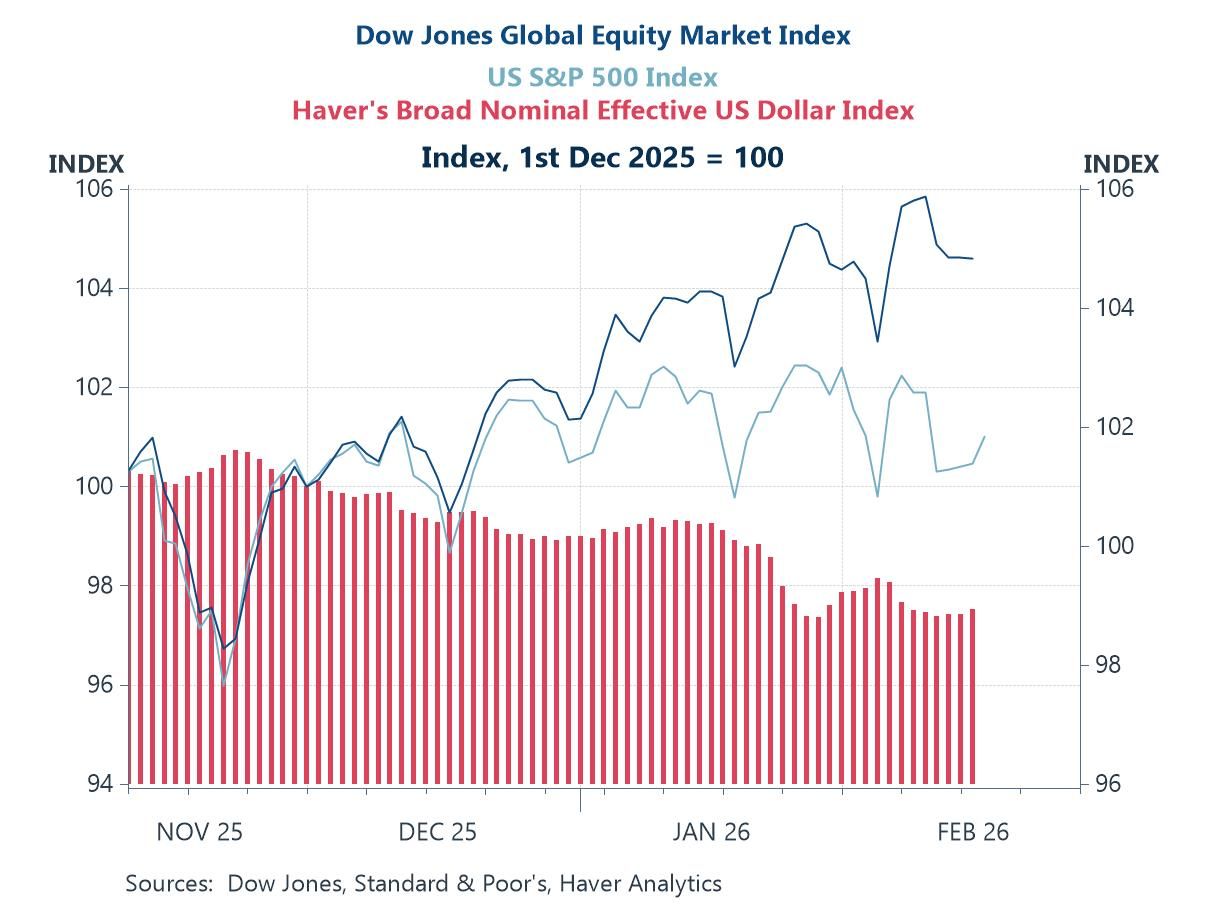 Global| Jul 28 2005
Global| Jul 28 2005Help-Wanted Advertising Inched Up
by:Tom Moeller
|in:Economy in Brief
Summary
The Index of Help-Wanted Advertising from the Conference Board inched up to 38 last month. The low reading equaled the average level for the quarter. During the last ten years there has been a 64% correlation between the level of [...]
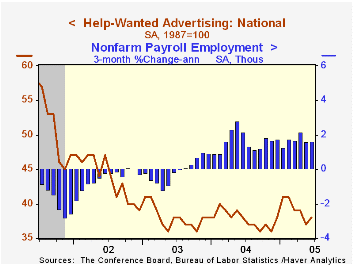
The Index of Help-Wanted Advertising from the Conference Board inched up to 38 last month. The low reading equaled the average level for the quarter.
During the last ten years there has been a 64% correlation between the level of help-wanted advertising and the three month change in non-farm payrolls.
The proportion of labor markets with rising want-ad volume rose modestly to a still low 39%.
The Conference Board surveys help-wanted advertising volume in 51 major newspapers across the country every month.
The latest help wanted report from the Conference Board is available here.
| Conference Board | June | May | June '04 |
|---|---|---|---|
| National Help Wanted Index | 38 | 37 | 38 |
by Tom Moeller July 28, 2005
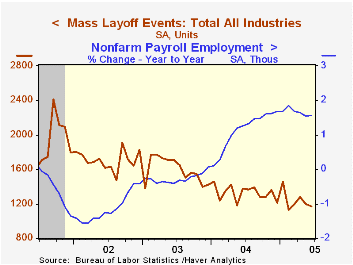
The Bureau of Labor Statistics reported that the number of mass layoff events dropped 1.8% in June for the second consecutive month. The decline lowered the average number of events so far this year 7.4% versus last year's first six months.
While the number of firms reporting mass layoffs in June fell to 1,175, these layoffs generated 127,887 (-9.5% y/y) initial claims for unemployment insurance.
During the last ten years there has been a (negative) 78% correlation between the number of mass layoff events and the y/y change in non-farm payrolls.
The Mass Layoff Statistics (MLS) program collects reports on mass layoff actions that result in workers being separated from their jobs. Monthly mass layoff numbers are from establishments which have at least 50 initial claims for unemployment insurance (UI) filed against them during a 5-week period. Extended mass layoff numbers (issued quarterly) are from a subset of such establishments--where private sector non-farm employers indicate that 50 or more workers were separated from their jobs for at least 31 days.
| Mass Layoffs | June | May | Y/Y | 2004 | 2003 | 2002 |
|---|---|---|---|---|---|---|
| Number of Events: All Industries | 1,175 | 1,196 | -14.5% | 15,900 | 19,155 | 20,474 |
| Numbers of Persons Filing Initial Unemployment Insurance Claim: All Industries | 127,887 | 128,771 | -9.5% | 1,588,493 | 1,936,463 | 2,256,014 |
by Tom Moeller July 28, 2005
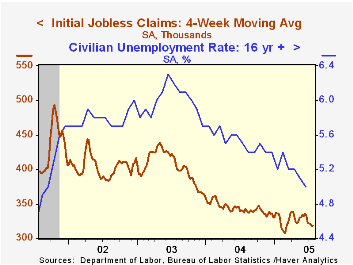
Initial claims for unemployment insurance did rise 5,000 to 310,000 last week but the increase hardly dented the 32,000 decline the week previous which was little revised. Consensus expectations had been for an increase to 320,000 claims.
During the last ten years there has been a (negative) 75% correlation between the level of initial claims for unemployment insurance and the monthly change in payroll employment. There has been a (negative) 65% correlation with the level of continuing claims.
The four week moving average of initial claims fell slightly to 318,250 (-5.7% y/y), the lowest level since early March.
Continuing claims for unemployment insurance rose 32,000 after a 46,000 decline the week earlier which was deeper than initially indicated.
The insured unemployment rate remained at the four year low of 2.0%.
The latest Beige Book from the Federal Reserve Board can be found here.
| Unemployment Insurance (000s) | 07/23/05 | 07/16/05 | Y/Y | 2004 | 2003 | 2002 |
|---|---|---|---|---|---|---|
| Initial Claims | 310 | 305 | -8.8% | 343 | 402 | 404 |
| Continuing Claims | -- | 2,603 | -11.1% | 2,926 | 3,531 | 3,570 |
Tom Moeller
AuthorMore in Author Profile »Prior to joining Haver Analytics in 2000, Mr. Moeller worked as the Economist at Chancellor Capital Management from 1985 to 1999. There, he developed comprehensive economic forecasts and interpreted economic data for equity and fixed income portfolio managers. Also at Chancellor, Mr. Moeller worked as an equity analyst and was responsible for researching and rating companies in the economically sensitive automobile and housing industries for investment in Chancellor’s equity portfolio. Prior to joining Chancellor, Mr. Moeller was an Economist at Citibank from 1979 to 1984. He also analyzed pricing behavior in the metals industry for the Council on Wage and Price Stability in Washington, D.C. In 1999, Mr. Moeller received the award for most accurate forecast from the Forecasters' Club of New York. From 1990 to 1992 he was President of the New York Association for Business Economists. Mr. Moeller earned an M.B.A. in Finance from Fordham University, where he graduated in 1987. He holds a Bachelor of Arts in Economics from George Washington University.



